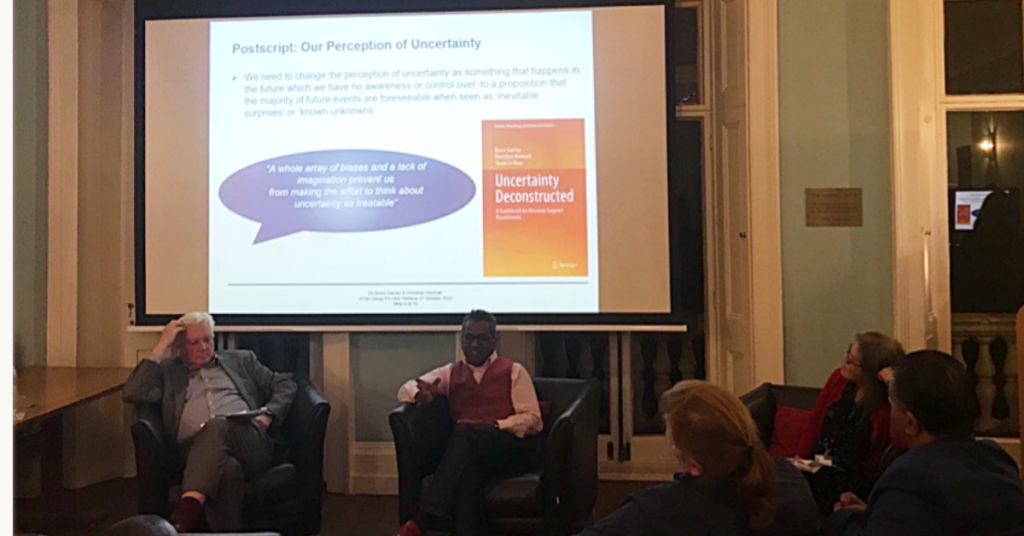The event, hosted by Birkbeck School of Science in collaboration with local Indian community ‘Adda’, attracted students and staff eager to celebrate Diwali and learn more about the folk culture and rural artistry of Bengal.

Group picture with Dr Ana Parejo Vadillo (School of Arts); visiting artists Prasenjit Bhattacharjee, Esha Chakravarty, Babu Fakir, Subho Karmakar; and Professor Sanjib Bhakta
As part of this year’s celebration of Diwali, Birkbeck was delighted to support an international community-based project between the Government of West Bengal, India and the United Nations Educational, Scientific and Cultural Organization (UNESCO). The project, called Rural Craft and Cultural Hubs (RCCH), is a collaboration between the Government of West Bengal, UNESCO and selected ambassadors to promote folk culture and rural artistry of Bengal.
Three internationally acclaimed artists, Subho Karmakar, Babu Fakir and Saurav Moni, attended Birkbeck’s 2022 Diwali on Campus event on Monday, 24 October, performing and exhibiting a selection of arts and crafts to Birkbeck students and staff.
Professor Sanjib Bhakta, based at Birkbeck’s School of Science, and ambassador for the project was one of the event’s organisers. He explained: “Diwali follows the epic story of ancient India, ‘Ramayana’, to represent the victory of good over evil and light over darkness. The symbolism of Diwali is appropriately summarised in the simple act of lighting a lamp or ‘diya’. This is said to ward off evil and welcome the Goddess Lakshmi (the Hindu Goddess of wealth and prosperity) into the house. The positive vibe that comes with the Diwali festival continues to be highly needed in the current challenging environment around the world.”
Brought up in West Bengal, Professor Bhakta was excited to welcome the artists to the event and share with students and fellow staff more of his culture. The artists played Baul music of Bengal and wore traditional clothing. The Baul are a group of mystics from the Bengal region who mix elements of Sufism and Vaishnavism. Considered to be both a religious sect and a musical tradition, Bauls are a very diverse group with many sub-sects but their membership mainly consists of Vaishnava Hindus and Sufi Muslims. They are often identified by their distinctive clothes and musical instruments, which the artists at the Diwali event also wore.
The event was well attended, and some Indian students dressed in traditional clothing for the occasion. To reflect the importance of food in Indian culture, and particularly during Diwali celebrations, traditional sweet bites, fresh fruit and drinks were served alongside the entertainment.



